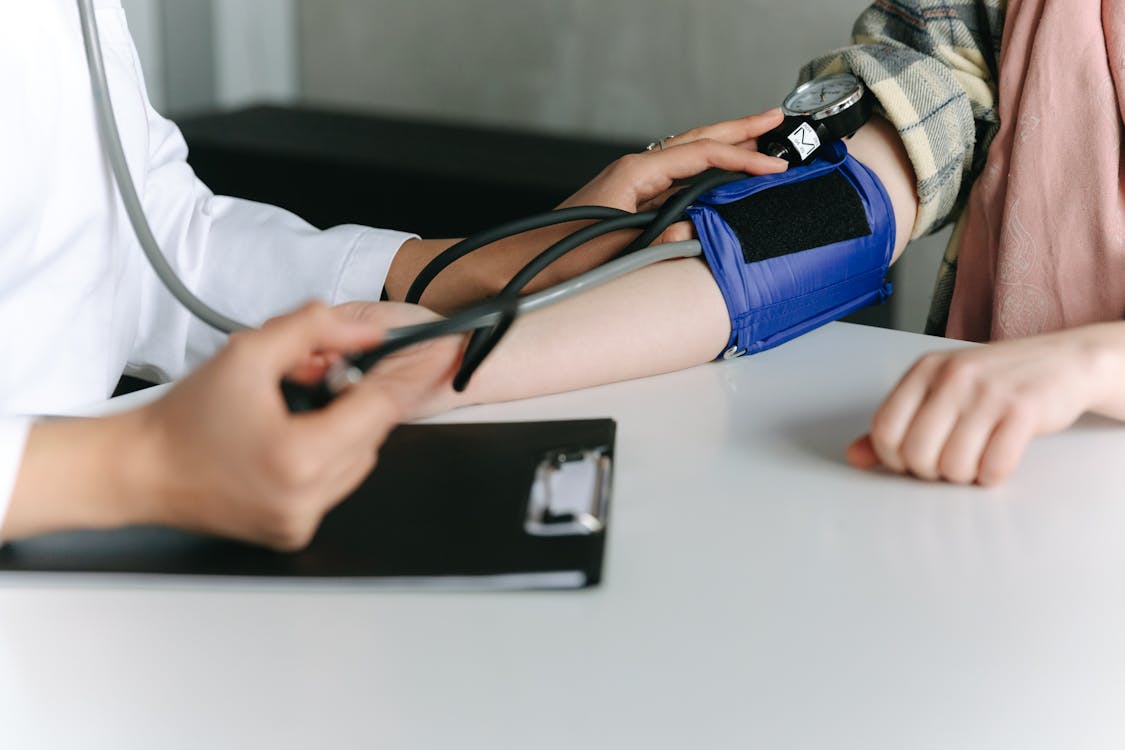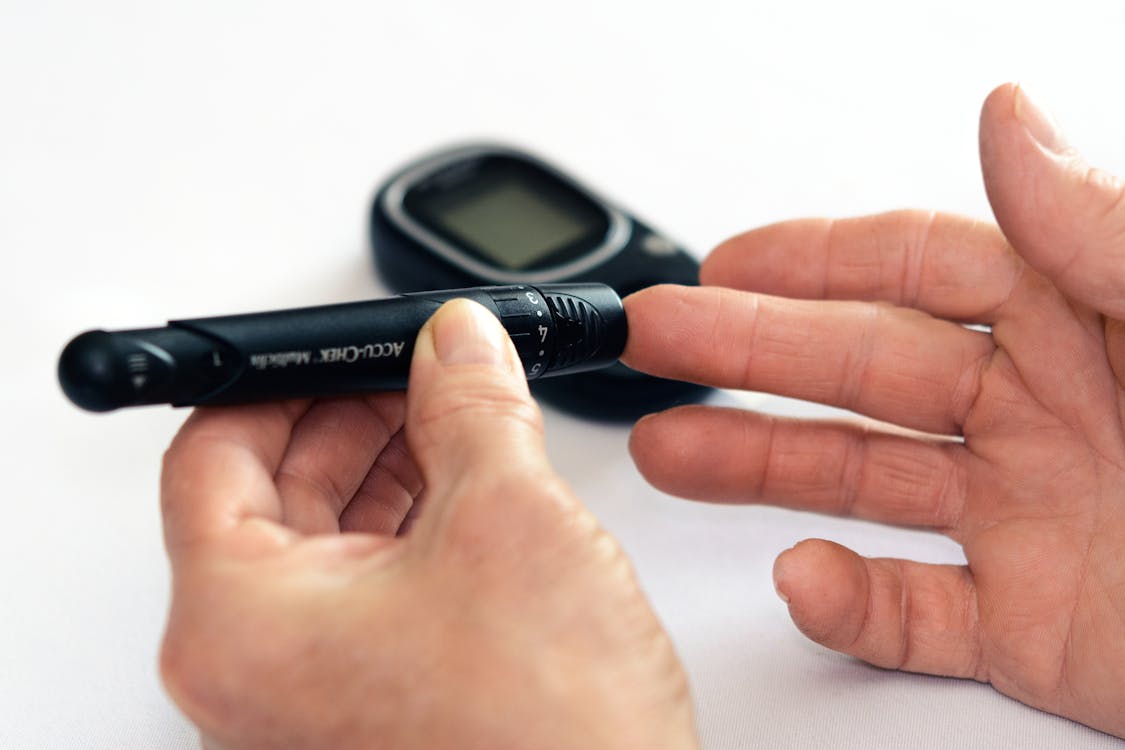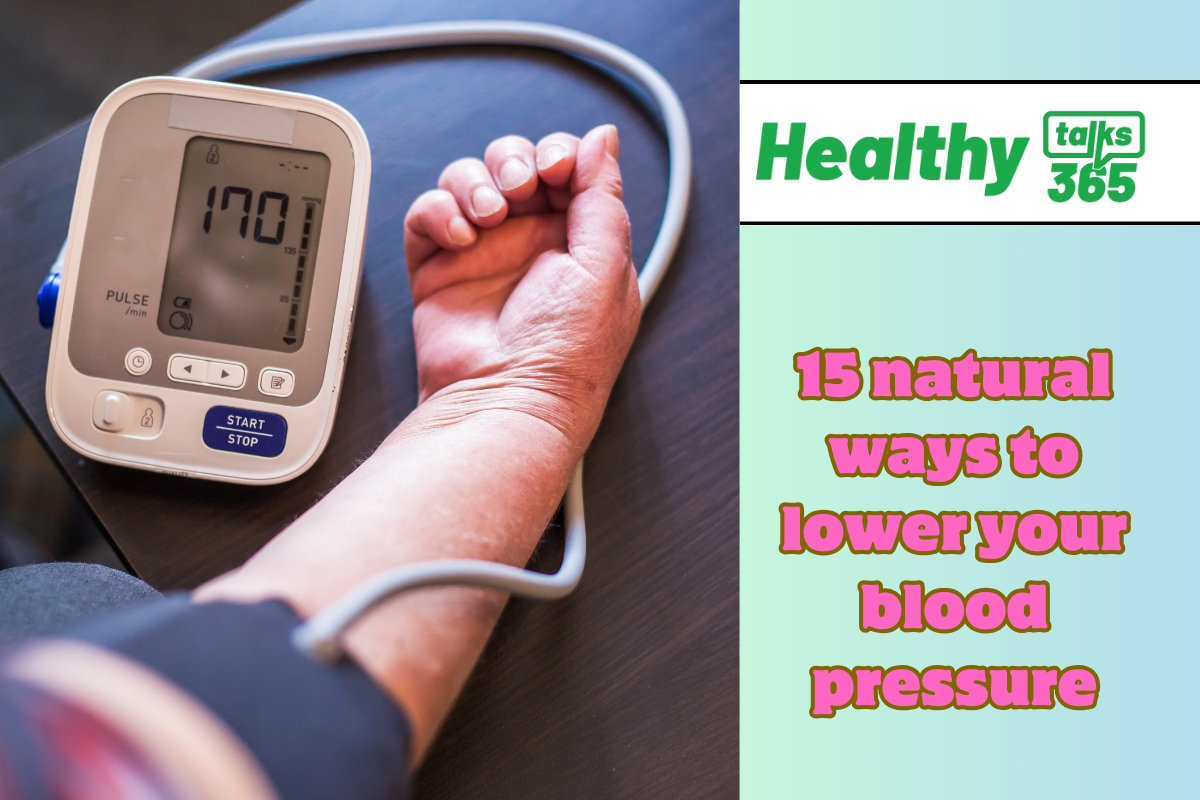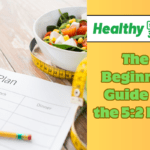15 natural ways to lower your blood pressure
1. Maintain a healthy weight to lower your blood pressure
Maintaining a healthy weight is essential for keeping your blood pressure in check. When you carry extra weight, especially around your waistline, it can put a strain on your heart. This strain makes your heart work harder to pump blood, leading to higher blood pressure levels over time. By focusing on achieving a healthy weight through a balanced diet and regular physical activity, you can significantly reduce this strain. A balanced diet means eating a variety of foods that provide essential nutrients without excessive calories.
2. Regular physical exercise helps to maintain blood pressure
Engaging in regular physical exercise is a cornerstone of managing blood pressure effectively. Physical activity doesn’t have to be strenuous; even moderate activities like brisk walking, dancing, or gardening can make a significant difference. When you exercise, your heart becomes stronger over time, enabling it to pump blood more efficiently with less effort. This efficiency lowers the force on your arteries, which in turn reduces your blood pressure. The recommended guideline is at least 150 minutes of moderate-intensity exercise per week, which breaks down to about 30 minutes a day, five days a week.
Read Also:
Best Exercises And Yoga Poses For A Healthy Lifestyle
3. Eat a balanced diet to avoid high blood pressure
Eating a balanced diet is crucial for preventing and managing high blood pressure. A balanced diet includes a variety of foods that provide essential nutrients such as vitamins, minerals, and fiber. Focusing on whole foods like fruits, vegetables, whole grains, and lean proteins helps to keep your blood pressure within a healthy range. The DASH diet (Dietary Approaches to Stop Hypertension) is specifically designed to lower blood pressure through dietary changes.

4. Reduce your sodium intake to lower your blood pressure
High sodium intake is closely linked to high blood pressure. Reducing the amount of salt in your diet can help lower blood pressure levels. Opt for fresh, unprocessed foods and use herbs and spices to flavor your meals instead of salt. Check food labels to choose low-sodium options whenever possible.
5. Limit alcohol consumption to avoid high blood pressure
Drinking alcohol in moderation is important for maintaining healthy blood pressure. Excessive alcohol consumption can lead to a rise in blood pressure and other health problems. Men should limit their intake to two drinks per day, and women to one drink per day to keep blood pressure in check.
Read Also:
How To Reduce Your Weight Under 45 Days: Tips And Solutions
6. Quit smoking to lower your blood pressure
Quitting smoking is one of the most impactful steps you can take to lower your blood pressure and improve overall cardiovascular health. Smoking tobacco directly increases blood pressure by causing narrowing of the blood vessels and accelerating heart rate. This puts added strain on the heart and circulatory system, leading to higher blood pressure readings over time. When you quit smoking, however, your body begins to repair itself almost immediately.
7. Manage stress to maintain normal blood pressure
Chronic stress can lead to persistent high blood pressure, as stress hormones like adrenaline and cortisol temporarily constrict blood vessels and increase heart rate. Finding healthy ways to manage stress, such as practicing relaxation techniques like deep breathing, progressive muscle relaxation, or mindfulness meditation, can significantly lower stress levels and promote cardiovascular health. Engaging in regular physical activity, such as walking, swimming, or yoga, also helps to release tension and improve mood, further supporting healthy blood pressure levels.
8. Limit caffeine to prevent high blood pressure
Opting for decaffeinated versions of your favorite beverages or choosing alternative drinks like herbal teas can help lower your overall caffeine intake. Remember that caffeine is not only found in coffee and tea but also in some sodas, chocolate, and certain medications. Reading labels and being mindful of hidden sources of caffeine can aid in reducing your overall consumption. If you enjoy coffee or tea, consider brewing weaker versions or opting for smaller serving sizes.

9. Get enough sleep to lower your blood pressure
Getting enough sleep is crucial for maintaining healthy blood pressure levels. Sleep deprivation can affect your body’s ability to regulate stress hormones, which in turn can elevate blood pressure over time. Aim for 7-8 hours of uninterrupted sleep each night to support your cardiovascular health. Creating a relaxing bedtime routine, such as taking a warm bath or reading a book, signals to your body that it’s time to wind down and prepare for rest.
10. Monitor your blood pressure regularly to attain lower blood pressure
Monitoring your blood pressure regularly at home is an important part of managing and potentially lowering your blood pressure. By tracking your blood pressure readings over time, you can identify trends and fluctuations that may require attention. Use a validated and reliable blood pressure monitor to take measurements consistently under similar conditions, such as at the same time of day and in a relaxed state. Keep a record of your readings to share with your healthcare provider during check-ups or if you notice any significant changes.
11. Eat foods rich in potassium to avoid high blood pressure
Including potassium-rich foods in your diet can also help in maintaining healthy blood pressure levels. Potassium counteracts the effects of sodium and helps to relax blood vessel walls, reducing the risk of high blood pressure. Good dietary sources of potassium include bananas, oranges, spinach, sweet potatoes, tomatoes, and other fruits and vegetables. Aim for a balanced diet that emphasizes whole foods and limits processed foods high in sodium, which can counteract the benefits of potassium-rich foods.
Read Also:
Tips for a Good Night’s Sleep: Creating a Relaxing Bedtime Routine
12. Increase magnesium intake to get lower blood pressure
Increasing magnesium intake can be beneficial for lowering blood pressure due to its essential role in cardiovascular health. Magnesium helps regulate blood pressure by relaxing blood vessels, which reduces resistance and allows blood to flow more easily. Foods rich in magnesium include leafy green vegetables like spinach and kale, nuts such as almonds and cashews, seeds like pumpkin and sunflower seeds, whole grains like brown rice and oats, and legumes such as beans and lentils. By incorporating these foods into your diet regularly, you can support healthy blood pressure levels naturally.
13. Eat dark chocolate to get lower blood pressure
Consuming dark chocolate in moderation can also contribute to lower blood pressure. Dark chocolate with a high cocoa content (at least 70%) contains flavonoids, which are plant compounds known for their antioxidant properties. These flavonoids promote the dilation of blood vessels, improving blood flow and potentially lowering blood pressure readings. Including small portions of dark chocolate as part of a balanced diet rich in fruits, vegetables, whole grains, and lean proteins can be a delicious way to support cardiovascular health.
14. Limit processed food to avoid high blood pressure
Processed foods are often high in sodium, unhealthy fats, and added sugars, all of which can contribute to high blood pressure. Reducing your intake of processed foods and opting for fresh, whole foods can help maintain healthy blood pressure levels. Preparing meals at home allows you to control the ingredients and make healthier choices.

15. Stay hydrated to get lower blood pressure
Proper hydration is essential for maintaining healthy blood pressure. Drinking adequate amounts of water helps the kidneys function properly and supports overall cardiovascular health. Aim to drink at least eight 8-ounce glasses of water a day, more if you are active or in a hot climate. Avoid sugary drinks and excessive caffeine, as they can negatively impact blood pressure.




